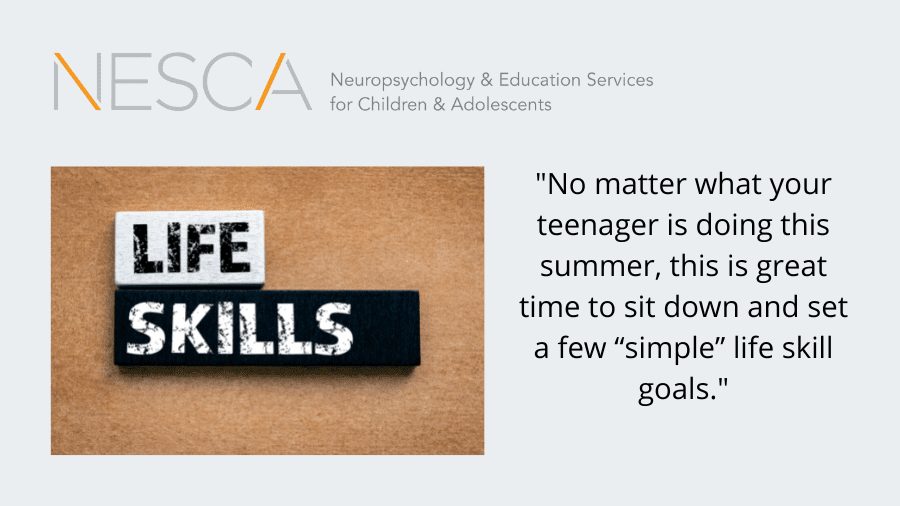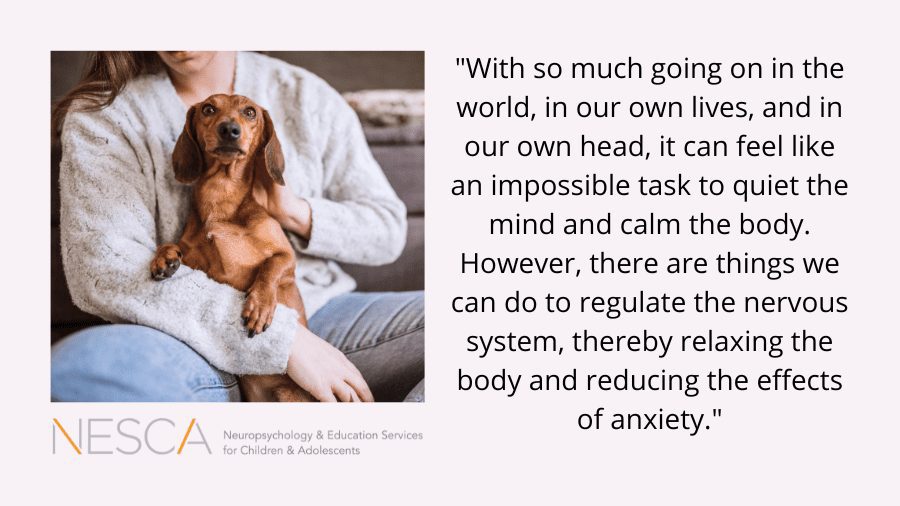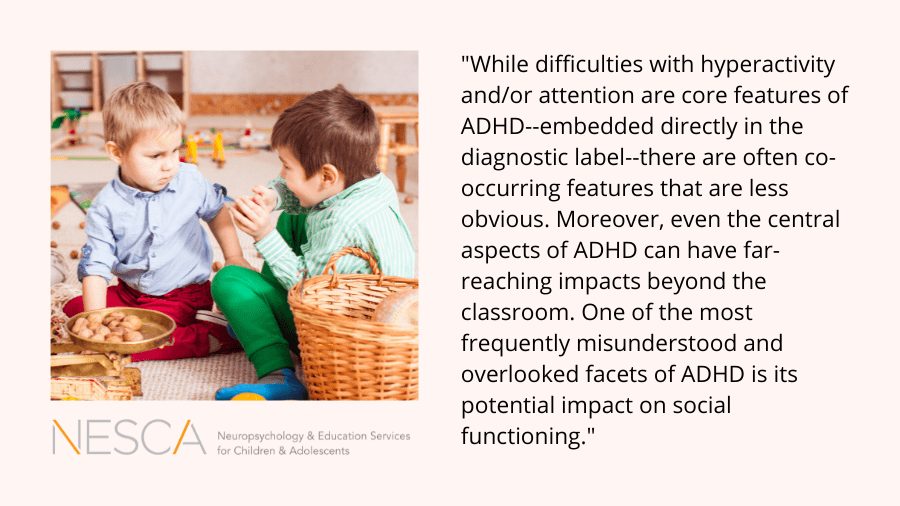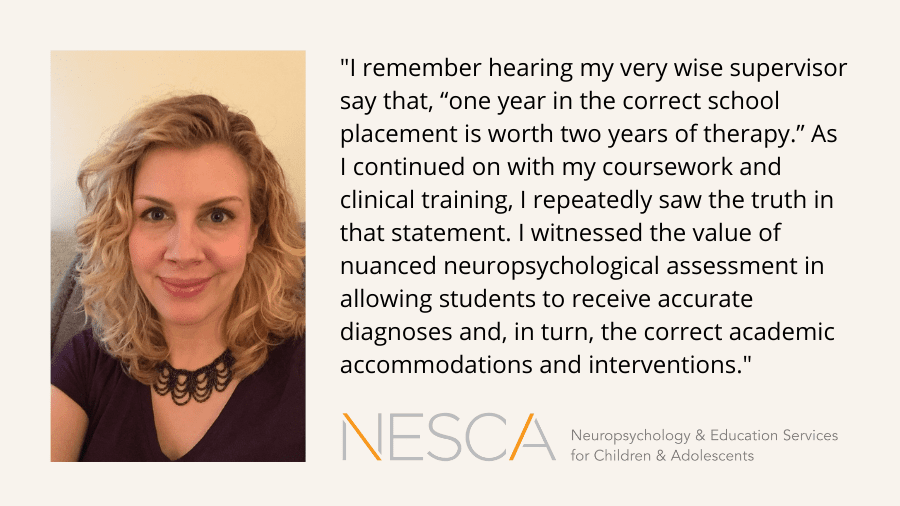
 By Dot Lucci, M.Ed., CAGS
By Dot Lucci, M.Ed., CAGS
Director of Consultation and Psychoeducational Counseling Services, NESCA
Much has been published about parenting and parenting styles, whether in YouTube clips, books, podcasts, scholarly articles, newspaper articles, and so much more. But basically, if you are a parent, you are just doing your job – you are parenting, trying to guide your children, teens, and young adults on their own paths so they grow up to be “good humans and lead happy, successful lives.”
My guess is you probably haven’t given your parenting style too much thought. You just go about whatever the day brings you with whatever you’ve got in your tank that day. You’ve probably heard the terms Helicopter Parents, Tiger Moms, Free-range Parenting, etc., to describe different parenting styles. Usually, our parenting styles emerge from our own histories, role models, experiences, and personalities. You may be parenting how you were parented because it worked for you or because you disliked the way you were parented so you moved to the complete opposite way of parenting.
Remember the book, “Battle Hymn of The Tiger Mother,” by Amy Chua from 2011? She wrote this book as a memoir – not as a parenting guide – but what a controversy it stirred regarding parenting styles! Alan Paul, a journalist for The Wall Street Journal then wrote, “Tiger Mom…Meet Panda Dad,” as a commentary against the Tiger Mom mentality and to bring dads into the parenting discussion. During this time period, there was much written about parenting styles, often characterized into four styles: Authoritative, Authoritarian/Disciplinarian, Permissive/Indulgent, and Uninvolved/Neglectful. As you can imagine, each style has its driving principles. In case you are interested in what the research says about the four parenting styles, the Authoritative parenting style wins out over the others in helping children develop into well-functioning adults.
 No matter what style you are, you are giving it your best shot. Each of the styles has much written about them and their impact on child development – some good some not so good. Parents may change their style(s) depending upon a variety of factors and adopt new ways. Try to be aware of your style and its impact on your kids – this realization may happen as you go. That’s okay. You are learning this job as you go, and we all know there is no manual. You are just doing it, living each and every day with what it brings to you. Most parents do not think about what parenting style they are going to use in the moment. Sometimes you may “catch yourself,“ see your child’s reaction, and adjust your style. Perhaps you are the “softie” most of the time, but then turn on the “tough love” style when needed.
No matter what style you are, you are giving it your best shot. Each of the styles has much written about them and their impact on child development – some good some not so good. Parents may change their style(s) depending upon a variety of factors and adopt new ways. Try to be aware of your style and its impact on your kids – this realization may happen as you go. That’s okay. You are learning this job as you go, and we all know there is no manual. You are just doing it, living each and every day with what it brings to you. Most parents do not think about what parenting style they are going to use in the moment. Sometimes you may “catch yourself,“ see your child’s reaction, and adjust your style. Perhaps you are the “softie” most of the time, but then turn on the “tough love” style when needed.
As a parent consultant, I often hear, “I must be the worst parent you’ve ever seen. You must think I’m a fool. Do all kids do this? Am I the only one who struggles getting their kids to follow directions?”…and so much more. Sure, I give them specific suggestions for parenting their child who has ADHD or is autistic; however, I match my recommendations to their parenting styles and personalities.
As a consultant, I often find myself saying these mantras in parent sessions:
You are good enough.
Show and tell your kids you love them.
You are giving it your best shot in this moment.
Be kind and gentle with yourself and your kids.
Have compassion and empathy for yourself and your kids.
Stay calm in the eye of the storm. ___ Happens!
You are human, and humans make mistakes – own them.
Don’t expect perfection. It is overrated. Cut yourself some slack.
Point out the positives. Catch ‘em being good!
Tell them what to do not what not to do.
Develop honest, authentic relationships with your kids.
Lead with your heart.
And as the saying goes….

If you are interested in learning more about NESCA’s Consultation Services, please complete our online Intake Form.
References
Alan Paul http://alanpaul.net/panda-dad/
4 Research-Backed Parenting Styles and How they affect your kids by Caroline Bologna https://www.huffpost.com/entry/four-parenting-styles-affect-kids_l_6270493fe4b0bc48f57e705f
4 Types of Parenting Styles and their effects on the child https://www.parentingforbrain.com/4-baumrind-parenting-styles/
Here’s what makes ‘authoritative parents’ different from the rest—and why psychologists say it’s the best parenting style by Francyne Zelster
https://www.cnbc.com/2021/10/05/child-psychologist-explains-why-authoritative-parenting-is-the-best-style-for-raising-smart-confident-kids.html
About the Author
NESCA’s Director of Consultation and Psychoeducational Services Dot Lucci has been active in the fields of education, psychology, research and academia for over 30 years. She is a national consultant and speaker on program design and the inclusion of children and adolescents with special needs, especially those diagnosed with Autism Spectrum Disorder (ASD). Prior to joining NESCA, Ms. Lucci was the Principal of the Partners Program/EDCO Collaborative and previously the Program Director and Director of Consultation at MGH/Aspire for 13 years, where she built child, teen and young adult programs and established the 3-Ss (self-awareness, social competency and stress management) as the programming backbone. She also served as director of the Autism Support Center. Ms. Lucci was previously an elementary classroom teacher, special educator, researcher, school psychologist, college professor and director of public schools, a private special education school and an education collaborative.
and academia for over 30 years. She is a national consultant and speaker on program design and the inclusion of children and adolescents with special needs, especially those diagnosed with Autism Spectrum Disorder (ASD). Prior to joining NESCA, Ms. Lucci was the Principal of the Partners Program/EDCO Collaborative and previously the Program Director and Director of Consultation at MGH/Aspire for 13 years, where she built child, teen and young adult programs and established the 3-Ss (self-awareness, social competency and stress management) as the programming backbone. She also served as director of the Autism Support Center. Ms. Lucci was previously an elementary classroom teacher, special educator, researcher, school psychologist, college professor and director of public schools, a private special education school and an education collaborative.
Ms. Lucci directs NESCA’s consultation services to public and private schools, colleges and universities, businesses and community agencies. She also provides psychoeducational counseling directly to students and parents. Ms. Lucci’s clinical interests include mind-body practices, positive psychology, and the use of technology and biofeedback devices in the instruction of social and emotional learning, especially as they apply to neurodiverse individuals.
To book a consultation with Ms. Lucci or one of our many expert neuropsychologists, complete NESCA’s online intake form. Indicate whether you are seeking an “evaluation” or “consultation” and your preferred clinician/consultant in the referral line.
Neuropsychology & Education Services for Children & Adolescents (NESCA) is a pediatric neuropsychology practice and integrative treatment center with offices in Newton, Massachusetts, Plainville, Massachusetts, and Londonderry, New Hampshire, serving clients from preschool through young adulthood and their families. For more information, please email info@nesca-newton.com or call 617-658-9800.





 Londonderry, NH office. She specializes in the evaluation of anxious children and teens, working to tease apart the various factors lending to their stress, such as underlying learning, attentional, or emotional challenges. She particularly enjoys working with the seemingly “unmotivated” child, as well as children who have “flown under the radar” for years due to their desire to succeed.
Londonderry, NH office. She specializes in the evaluation of anxious children and teens, working to tease apart the various factors lending to their stress, such as underlying learning, attentional, or emotional challenges. She particularly enjoys working with the seemingly “unmotivated” child, as well as children who have “flown under the radar” for years due to their desire to succeed.
 meaningful skills in order to reach their goals. She has spent the majority of her career working in a private school for students with ASD. She has also spent some time working in an inpatient mental health setting. Lyndsay uses occupation-based interventions and strategies to develop life skills, executive functioning, and emotional regulation. While completely her doctoral degree at MGH Institute of Health Professions, Lyndsay worked with the Boston Center for Independent Living to evaluate transition age services. She uses the results from her research to deliver services in a way that is most beneficial for clients. Specifically, she focuses on hands-on, occupation-based learning that is tailored the client’s goals and interests.
meaningful skills in order to reach their goals. She has spent the majority of her career working in a private school for students with ASD. She has also spent some time working in an inpatient mental health setting. Lyndsay uses occupation-based interventions and strategies to develop life skills, executive functioning, and emotional regulation. While completely her doctoral degree at MGH Institute of Health Professions, Lyndsay worked with the Boston Center for Independent Living to evaluate transition age services. She uses the results from her research to deliver services in a way that is most beneficial for clients. Specifically, she focuses on hands-on, occupation-based learning that is tailored the client’s goals and interests.





 attention deficit disorders, communication disorders, intellectual disabilities, and learning disabilities. She particularly enjoys working with children and their families who have concerns regarding an autism spectrum disorder. Dr. Milana has received specialized training on the administration of the Autism Diagnostic Observation Schedule (ADOS).
attention deficit disorders, communication disorders, intellectual disabilities, and learning disabilities. She particularly enjoys working with children and their families who have concerns regarding an autism spectrum disorder. Dr. Milana has received specialized training on the administration of the Autism Diagnostic Observation Schedule (ADOS).
 neuropsychologist who has been practicing for almost 20 years. In 1996, she jointly founded the Children’s Evaluation Center (CEC) in Newton, Massachusetts, serving as co-director there for almost ten years. During that time, CEC emerged as a leading regional center for the diagnosis and remediation of both learning disabilities and Autism Spectrum Disorders.
neuropsychologist who has been practicing for almost 20 years. In 1996, she jointly founded the Children’s Evaluation Center (CEC) in Newton, Massachusetts, serving as co-director there for almost ten years. During that time, CEC emerged as a leading regional center for the diagnosis and remediation of both learning disabilities and Autism Spectrum Disorders.
Connect with Us